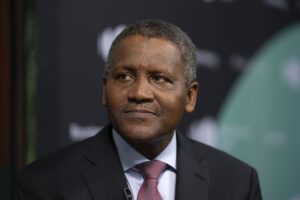
GDP rebasing to provide accurate picture of Nigeria’s economy — NBS
The rebasing of Nigeria’s Gross Domestic Product (GDP) and Consumer Price Index (CPI) will ensure that economic indicators accurately reflect the country’s current realities. This assurance was given by the Statistician General of the Federation and Head of the National Bureau of Statistics (NBS), Semiu Adeniran, during a special session with the Civil Society Organisation (CSO) community in Abuja on Monday.
The session was facilitated by BudgITng in partnership with the NBS.
Adeniran explained that the rebasing process is a critical tool for aligning statistical measurements with evolving economic dynamics. These include the emergence of new industries and shifts in consumption patterns, which are essential to capturing the true state of the economy.
“Rebasing our GDP and CPI allows us to align with these transformations, providing a more precise and relevant picture of Nigeria’s economic landscape. This process is foundational to informed policymaking, strategic planning, and effective governance,” Adeniran remarked.
GDP rebasing, which involves updating the base year used to calculate national output, is particularly vital for economies like Nigeria, where structural changes in industries such as technology, services, and manufacturing continue to redefine economic contributions.
The Global Director at BudgITng, Seun Onigbinde emphasized the importance of institutional trust in executing the rebasing exercise.
Drawing lessons from Nigeria’s previous GDP rebasing in 2014, Onigbinde noted the significant impact of policy reforms, such as telecommunications deregulation and banking sector recapitalisation, which boosted the services and ICT sectors’ contributions to the economy.
He noted that the success of any rebasing effort depends on building public trust in the institutions responsible for its implementation.
He said the last rebasing effort revealed critical insights into sectoral contributions, particularly in services and ICT, and demonstrated how policy shifts can significantly reshape the economy. Several experts gather their perspectives on Nigeria’s ongoing GDP rebasing exercise, exploring its potential impacts on the economy, investment climate, and policy direction.
The Chief Executive Officer of the Centre for the Promotion of Private Enterprises (CPPE), Dr. Muda Yusuf, emphasised that the rebasing exercise could significantly benefit investors by providing a clearer understanding of the economy’s structure.
In a swift response, Yusuf said, “The rebasing will help investors in determining where to invest, determining investment prospects, and generally supporting the process of business strategies. The more investors are able to understand the structure of the economy, the more they are able to invest more appropriately and more strategically.”
By updating the base year for measuring GDP, the exercise is expected to better capture the contributions of emerging industries, such as technology and the creative sector, which have gained significant traction in recent years.
The CEO of SPM Professionals, Dr. Paul Alaje highlighted the immediate impact of rebasing on GDP figures, noting that the process often results in higher GDP values.
“Immediately when you rebase, your GDP goes one direction: higher, upward. You look for areas that have not been captured before or not formalised, you formalise them, and that makes your GDP increase,” Alaje said.




